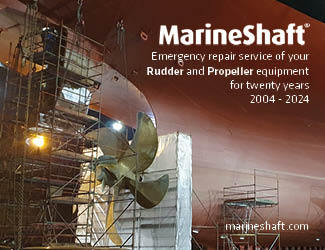
There are many levers to be tightened in the environmentally sound transformation of the maritime industry. But where to start? We have asked classification societies. This is the reply from Giosuè Vezzuto EVP Marine, RINA.[ds_preview]
The shipping industry faces huge challenges to decarbonize and meet the targets set by IMO 2030 and 2050. Although there is much work to be done, a lot of progress is being made with some exciting opportunities through new technology and new energies. Classification Societies are evolving into professional transformation advisors and regulatory experts for an uncertain commercial world.
As one of the hard-to-abate sectors, the shipping industry has to look at other industries to find potential solutions, both for the longer term and for the present. Decarbonization requires a multi-faceted approach with solutions that will reduce carbon emissions today and meet IMO 2050 going forward. It also involves all stakeholders within the industry, technology, new fuels, and fresh approaches to operating procedures. We simply cannot afford to ignore any of the options available to us if we are going to achieve our goals. This all requires collaboration, which is why RINA has established global Decarbonization Committees, including one focusing on Northern Europe, to discuss practical, achievable solutions that will take the industry forward putting at service of the industry its experience in the decarbonisation of multiple sectors, including mobility, infrastructure, and energy.
When considering new fuels, shipowners are faced with problems relating to available onshore infrastructure and knowing which fuels will be readily available for bunkering in the future. For new vessels today, knowing which technologies to invest in to ensure both compliance and longevity is an issue. However, the recent Approval in Principle (AiP) of LNG/hydrogen-fuelled MR tanker offers a practical way forward. Using a novel propulsion arrangement, LNG is used to produce hydrogen directly onboard the vessel using a gas reformer, negating the need for portside hydrogen infrastructure. It is a perfect example of how modular, scalable solutions can provide the industry with solutions to take it forward step by step. Technology can be added over time and increasing amounts of hydrogen used to fuel the ship going forward, exceeding the requirements of IMO 2050. This exciting option can be applied to any size of vessel and is a solution that owners and operators can embrace today with confidence.
RINA has also carried out studies to define testing protocols for type approval and product certification for fuel cells, which can be used together with unconventional fuels (LNG, Methanol, Hydrogen) as part of the energy transition. Solutions for cruise ship distributed power generation (e.g., in ships’ Main Vertical Zones) based on methanol solutions for the supply of the relevant fuel cells have been approved. Some applications will be ready this year for possible installation on board.
Alongside new fuels like hydrogen, ammonia, methanol and hybrid or fully electric designs, as well as possibilities including nuclear power, digitalization remains a vital component of the decarbonization journey. Through advanced analytical techniques, fleet optimisation software delivers significant advantages in terms of operational efficiency and reduced emissions. Through data and digital tools, there’s increased safety, reduced risk of human error, and more about best-operating practices is learnt. These are essential tools to support the industry starting immediately and into the future.
While the shipping industry faces one of its biggest challenges in decarbonization, this is also a time of opportunity and innovation that will redefine it for the future. In the long term, we need to find ways around the barriers to zero-carbon fuels, through collaboration, investment, regulation, and incentives. New fuels need to be made available at a scale and price to provide viable options for the shipping industry and promote a greener economy. This will necessitate support from governments in the form of schemes such as emissions trading and levies on heavy fossil fuels, which will help further finance the research and development of green solutions in the longer term.


















